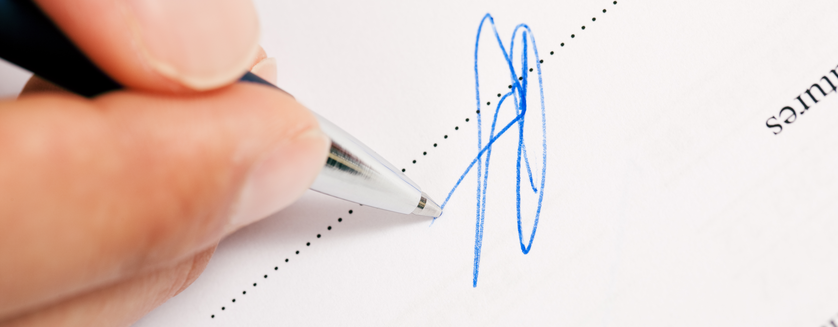Notarising a Power of Attorney
When signing a power of attorney, you normally need to have the document witnessed by an independent person. This is typically witnessed by a solicitor or notary public.
When a power of attorney is ‘witnessed’ the solicitor or notary will check a person’s identity and then watch them sign the document. The solicitor or notary will then add their own signature. If the document does not already contain a ‘witnessing statement’ they may add their own certification
- Signed in my presence
- Witnessed by
- Signed before me
The document should clearly show the date it was signed.
When a notary signs a document it is often referred to as ‘notarising’ or ‘notarisation’. When solicitors sign a document it is ‘called certifying’ or ‘certification’. Adding the apostille is 'legalsing' a document.
Should you use a Notary Public?
This depends on two points.
- What does the document say? Some power of attorneys, often provided to you by an overseas lawyer, may specifically mention signing the document in the presence of a notary public. Others do not, so you may be able to use a solicitor.
- What does the person requesting the document want? Have they specifically requested you get the document witnessed by a notary? Some countries prefer that notaries witness documents. For example, Spain and the USA normally request documents are witnessed by a notary public as that is normal procedure locally.
The main difference between a notary and a solicitor is the cost for the signature. A solicitor may charge just £10 to £20 to witness you signing a document. A notary public in the UK may charge £80-100 for the same service. Notaries are solicitors that have taken an extra qualification and the Notaries Society recommends they charge higher fees.
If attending a law firm to get a document witnessed do not let a trainee solicitor, practice manager or administrator sign the document. Insist on seeing a registered solicitor to avoid your document being rejected.
What is a Power of Attorney?
A power of attorney is a letter or document that authorises someone to act on behalf of another person. This legal document allows someone else to make decision or act on your behalf. This may be in personal matters, business situations or legal actions.
The power of attorney may be issued because you are unable to physically be present to take action yourself or because you are no longer capable of making an informed decision.
Common reasons we process powers of attorney include-
- People buying or selling property abroad
- Issuing power to a family member in another country to deal with your legal or financial matters
- Instructing an overseas lawyer to act on behalf of a third party in legal matters
- Businesses issuing power to an overseas representative
- Providing evidence that you have the power to act on behalf of someone who is no longer able to do this themselves (e.g a Lasting Power of Attorney registered with the UK government)
If you have a power of attorney that needs to be used outside of the UK then you may be asked to obtain an apostille on this document. Your document will then be legalsied for international use. We provide the apostille for powers of attorney that have already been witnessed by a solicitor or notary.
Please note: We cannot 'witness' or notarise a document for you. You must obtain this before sending the document to us.







